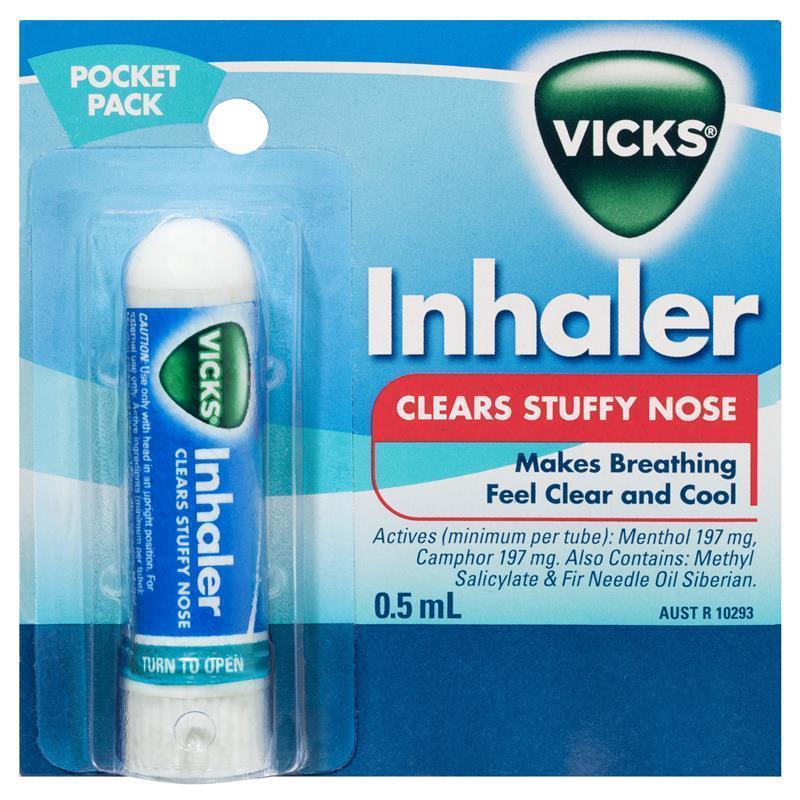Actually, it's not like the Vick's OTC device in the photo. This is a 'puffer' that you insert into each nostril, then inhale while you squeeze the injector at the tip. It sends an aerosol into your sinuses. The contents go into your nasal passages, and through the back of the sinuses, into the back of your throat, and often down into your esophagus, where they're eventually swallowed. You can often TASTE the stuff after you've inhaled it. THAT's why the thing is also connected with Thrush -- the stuff has to go SOMEWHERE, and that's often into the back of your throat and back of your mouth. This apparently weakens resistance to stuff like candida (which is actually thrush).
In the United States, they call these things inhalers - because you inhale the contents into your nasal passages and sinus (and, unfortunately, also into the back of your throat).
Until recently, most of these were patented prescription medications - inhalable steroids. I don't really like them.
The pharmaceutical companies realized that the patents were set to expire, so they added an antihistamine to the steroid, and got a NEW patent on this dollar's worth of antihistamine (perhaps much less than that) and now sell the stuff for more than $200. The new stuff is oddly called Dymista. I'm guessing that this is the version for men. The version for women should be called Dymissus. For religious people, the men's version would be Dybrutha and the women's version would be Dysista. For really bad guys, I suspect that it would be Dymofu. For people who have digestive allergies to the stuff (because some of it ultimately gets into the digestive system), they may want to call it Dyarrhea. It's rather stupid that ANY pharmaceutical product would have a name that starts with the letters DY.





